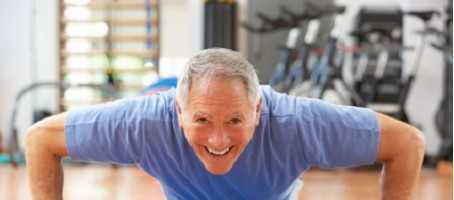Moderate exercise following bariatric (weight loss) surgery reduces certain metabolic risk factors linked to type 2 diabetes, according to new research.
The study, conducted by researchers at the Sanford-Burnham Medical Research Institute for Metabolism and Diabetes, suggests that there are benefits to exercise beyond weight loss.
The study, published in The Journal of Clinical Investigatio, split patients who had recently undergone bariatric surgery into two groups: the first group took part in an education program after surgery, while the second group took part in the education program and an exercise program.
The education program included lectures and discussions, with the aim of teaching the patients about medication use, upper-body stretching, and nutrition. The exercise group participated in 120 minutes of exercise every week.
The exercise group demonstrated significant improvements to their glucose metabolism and insulin sensitivity, which indicates a reduction in their risk of type 2 diabetes.
In addition, the exercise group significantly improved their cardiorespiratory fitness: in other words, their body’s ability to supply oxygen to the muscles during exercise increased.
Good cardiovascular fitness reduces the risk of developing heart disease, type 2 diabetes, lung cancer, and stroke.
Bret Goodpaster, professor at Sanford-Burnham Medical Research Institute, explained: “This is the first randomised, controlled clinical study that examines the effects of exercise on insulin sensitivity and other cardio and metabolic risk factors following bariatric surgery. The data support the inclusion of an exercise program following bariatric surgery to further enhance the health of individuals who opt for surgery to lose weight.
“Importantly, our study showed that aerobic exercise is feasible in this population – a result that directly counters the perception that severely obese individuals cannot respond to lifestyle interventions.
“Moreover, we have identified specific, non-weight related health benefits that exercise confers on these individuals. We look forward to additional studies to determine the optimal amount and type of exercise that produces the best physiological results.”
What's new on the forum? ⭐️
Get our free newsletters
Stay up to date with the latest news, research and breakthroughs.




